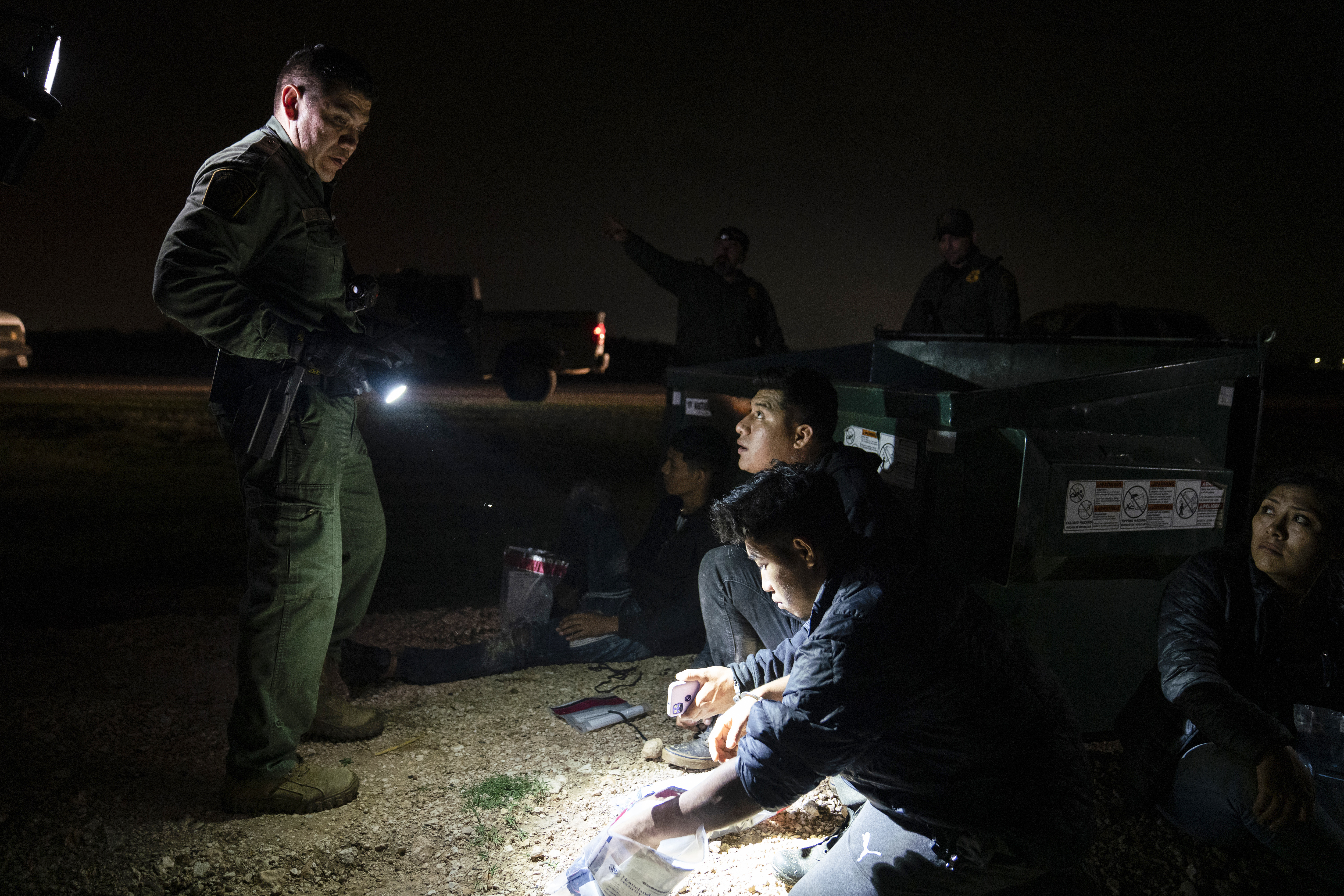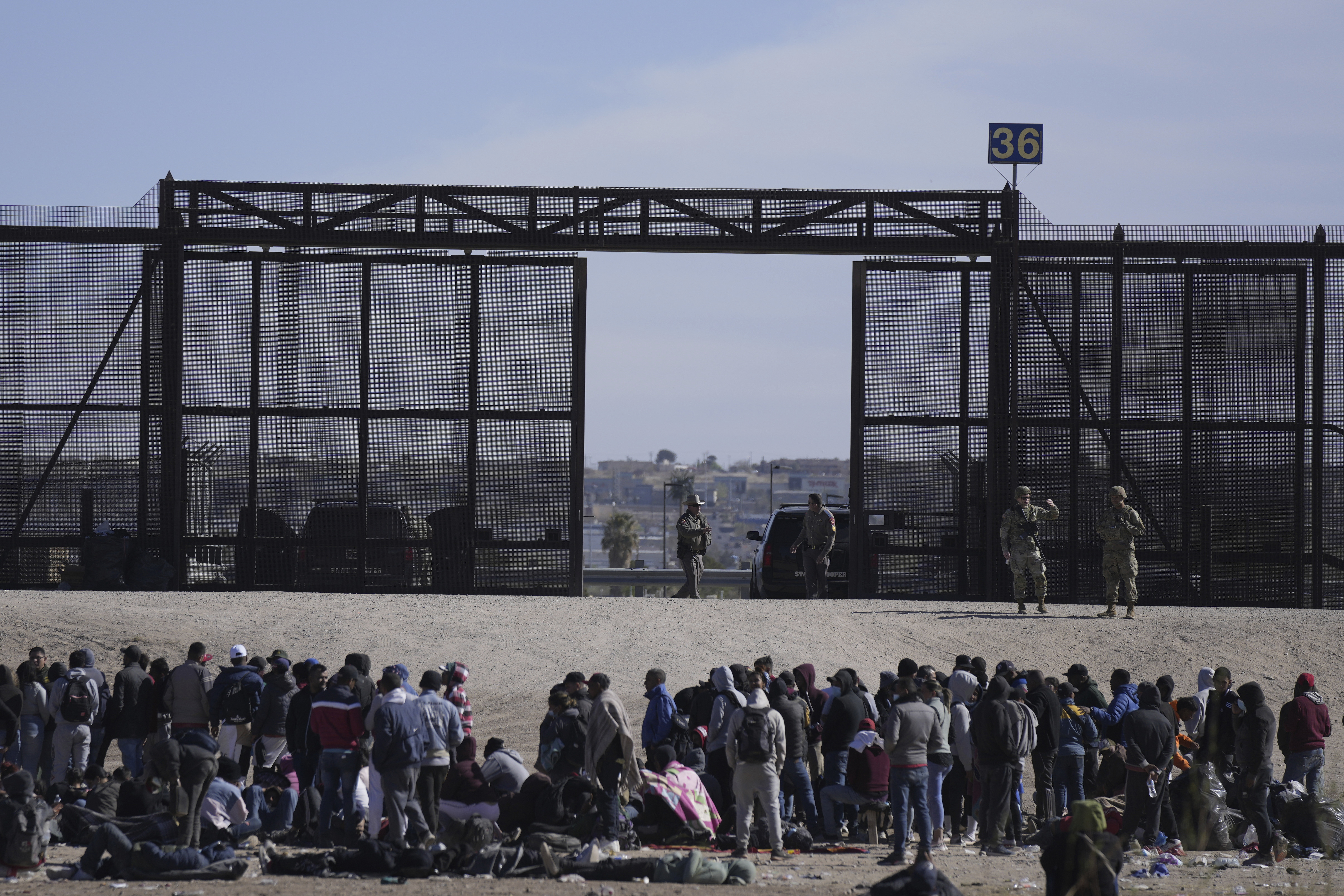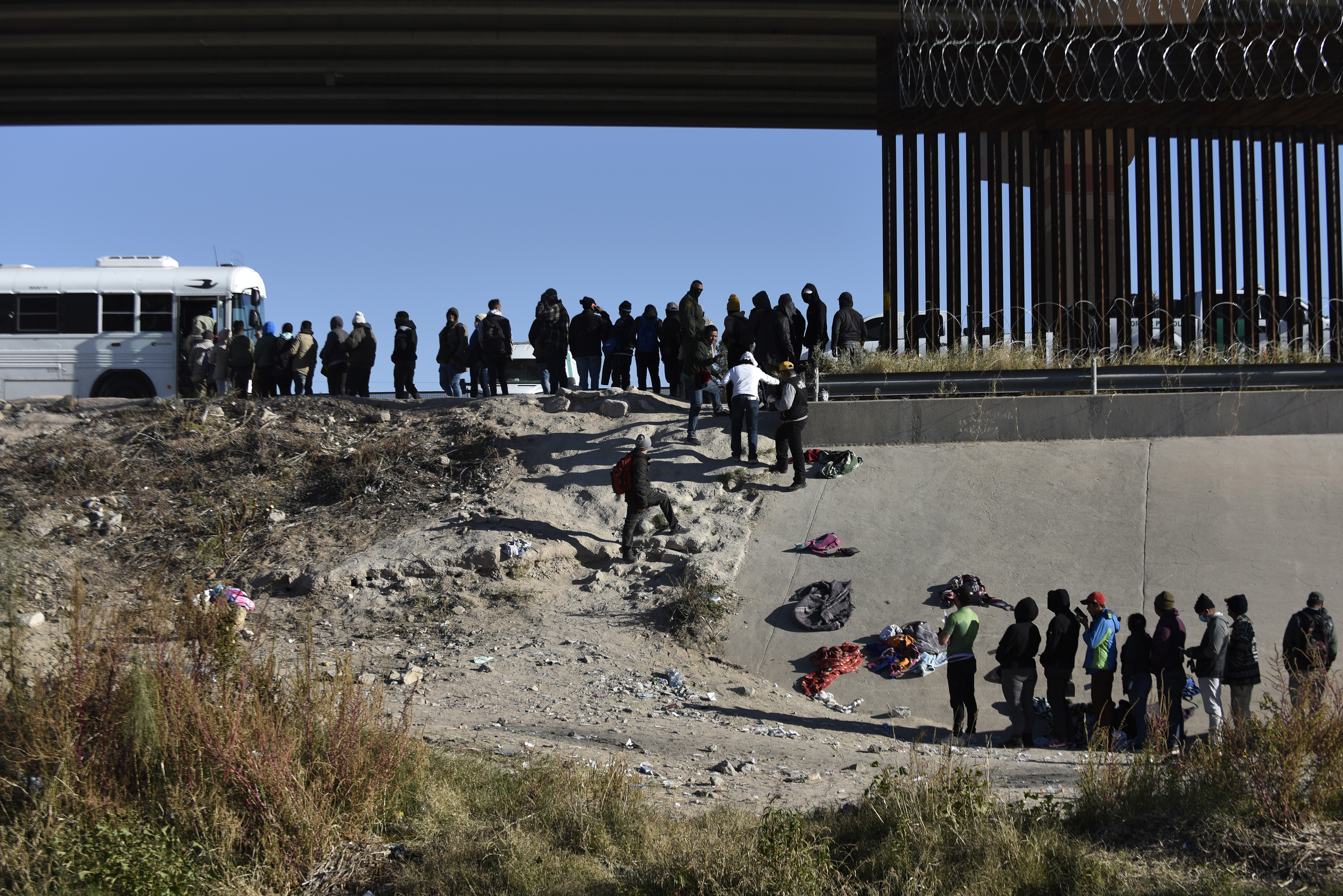A Trump-era public health restriction that prevented asylum-seekers from crossing the border into the U.S. amid the coronavirus pandemic is set to expire on Thursday.
The policy, known as Title 42, was widely criticized by Democrats and immigration advocates. But what is Title 42, and what affect could its ending have on U.S. immigration? Here’s what you need to know.
What Is Title 42?
Title 42 is an obscure public health rule that gives federal health officials the authority during a pandemic to turn away asylum-seekers in order to limit “the introduction of communicable diseases.” This legal authority is named for a 1944 public health law to prevent communicable disease.
Get DFW local news, weather forecasts and entertainment stories to your inbox. Sign up for NBC DFW newsletters.
In March 2020, the Centers for Disease Control and Prevention under the Trump administration invoked the policy, arguing that it was needed in order to curb the spread of COVID-19 as coronavirus cases soared in the U.S. The order gave border patrol agents the right to expel migrants seeking asylum, without giving them an opportunity to explain their persecution case.
While officials said at the time the move was a way to keep COVID-19 out of the United States, advocates, public health officials and even some within Trump's administration criticized the decision as an excuse to seal the border to migrants unwanted by then-President Donald Trump.
When Does Title 42 Expire?
On Thursday, May 11, the government will end Title 42, under which migrants have been expelled from the U.S. more than 2.8 million times since March 2020.
Why Is Title 42 Ending?
The Biden administration had repeatedly sought to end the policy, but its plans were delayed by legal challenges from Republican states' attorneys general. But once the pandemic waned, the public health order that led to using Title 42 was rendered moot, and the U.S. Supreme Court canceled arguments in the case. Another administration effort to unwind the policy had been blocked by a federal judge in Louisiana.
How Will the End of Title 42 Affect Immigration?
“We’ve been preparing for quite some time and we are ready. What we are expecting is indeed a surge. And what we are doing is planning for different levels of a surge,” Homeland Security Secretary Alejandro Mayorkas said last week during a visit to southern Texas. But he also stressed that the situation at the border is “extremely challenging.”
Officials in Biden's administration say they have been preparing for well over a year for the end of Title 42. The strategy has hinged on providing more legal pathways for migrants to get to the U.S. without risking the perilous journey to the border. That includes things like setting up centers in foreign countries where migrants can apply to emigrate as well as a humanitarian parole process already in place with 30,000 slots a month for people from four countries to come to the U.S.
The strategy is also heavy on consequences. The U.S. is proposing a rule that would severely limit asylum to migrants who first travel through another country, quickly screening migrants seeking asylum at the border and deporting those deemed not qualified, and a five-year ban on reentry for those deported.
A lot of these consequences have been met with harsh criticism by immigrants' rights groups who have gone so far as to compare the policies to Trump's and say the right to apply for asylum on U.S. soil is sacrosanct. Much of the Biden administration strategy is also facing legal peril in the coming weeks. The proposed rule limiting asylum is almost certain to be the subject of lawsuits. And Republican-leaning states want to stop the Democratic administration's use of humanitarian parole on such a large scale.
Which Countries Have Been Most Affected by the Policy?
A study by the nonprofit Human Rights First found that Title 42 has impacted mostly migrants from El Salvador, Guatemala, Haiti, Honduras, Venezuelans, Colombia and Mexico. The same study also found the policy "discriminatorily" targeted Haitians and other Black asylum seekers, noting that the flood of Ukrainian refugees fleeing the Russian invasion have been able to enter through the Southern border while those fleeing violence in Central American and Caribbean countries are blocked.
The study also found that migrants seeking safety who were turned away faced kidnappings, rape, torture and other violent attacks in Mexico.
The Associated Press and NBC News contributed to this report.





